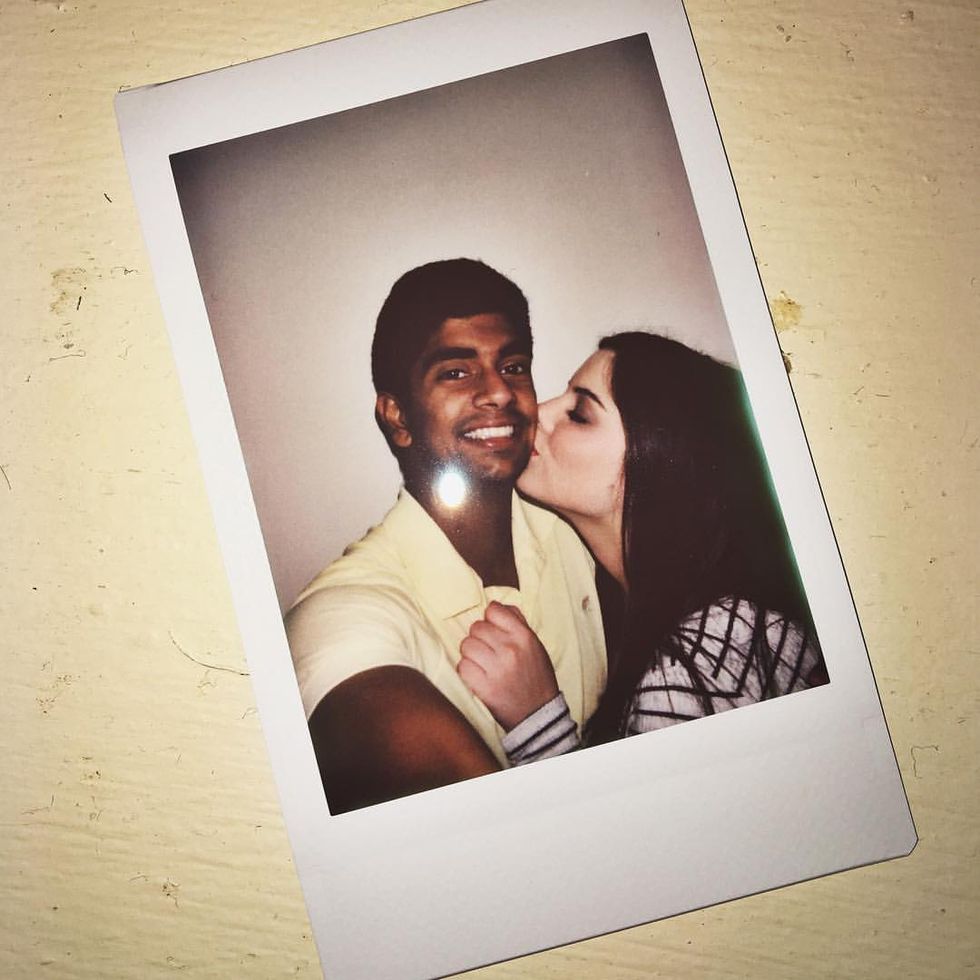There’s a moment of confusion whenever I tell someone my boyfriend’s name. They pause and consider, trying to pick out the syllables they recognize. They repeat it back to me, usually incorrectly, always dripping in awe or uncertainty. I smile my way through it, and their confusion leads way to a guilty grin, followed as quickly as possible by, “That’s wonderful!”
I didn’t think that dating a person of color was something that would impact the entirety of my life. He is a part of my day-to-day experiences, a large part, but I never considered the reverberating impacts it would have on the rest of my interactions. Any comment, any joke, any light turn of phrase can set my teeth on edge. There’s always this burning need for me to pipe up about my boyfriend to make them feel uncomfortable, to remind them that what they’re saying isn’t acceptable just because they’re speaking to or around white people.
Dating a person of color isn’t something I take lightly. It is exactly the same in a lot of ways – we’re normal college kids, involved in our Greek organizations and the Honors College, going to sporting events and taking part in school traditions the same as everybody else – but there’s something inherently different about it, too. It means he was worried the first time he met my parents and my extended family. It means an older man who wouldn’t have looked twice at me otherwise stared us at in a restaurant I’ve frequented since I was a kid. It means he has to hold me back when people make passing comments, under their breath or to our faces, it doesn’t matter.
My privilege has become so deeply ingrained in me that there are moments where something is said or a look lasts just a little too long, and I don’t notice. “That didn’t mean anything,” I tell him, and he shakes his head like I cannot possibly understand. (And he’s right. I can’t.) Then there are other times where it is so glaringly obvious that it makes me seethe, where I am infuriated by the most minor of incidents, and he tells me, “This happens all the time, it’s OK.”
The day after Trump was elected, for example, I was hesitant to walk around campus because it would bother me if people were crude or aggressive in their celebrations. In contrast, someone yelled at my boyfriend, “Build the wall! Go back to where you came from!” I was shaking in anger when he told me, absolutely furious; my friends told me he should report it to the school. But he simply shrugged his shoulders and told me, “It’s really fine. It happens.” I have never felt the starkness of my privilege as clearly as I did in that singular moment.
Dating a person of color means I have had to learn my own place in this racialized system. It has forced me to reconsider the way I view others, my role in their lives and my complicity in their own situations. Dating a person of color means that I am put into a position where my eyes are opened to the struggles he faces every day while still inhabiting my own world of privilege, a duality I'm still coming to terms with.
But in the same ways that I have learned anger unlike any I’ve ever known, dating a person of color has also taught me about the love that exists here, too. Not only from him – he is a person whose love is so deep and loyal and unfailing, a person who will help anyone who is down, whose heart is too big for his own chest sometimes – but also from those around us. My parents and my family, people he was terrified of meeting out of fear of their disapproval simply based on his race, adore him. My best friends have accepted him into our close-knit, impenetrable group with ease. With them, there was never a beat of uncertainty or a question of, “What’s his name again?” The stereotypical questions about his family or his origins or his religious views never came up. With them, they accepted him as my boyfriend, the same way any white boy would have been.
Dating a person of color is not the same as dating someone of the same race as you, especially if you’re a white person. It’s intrinsically different because we still live in a world where race is seen as a determining factor of inequality, where I am presumed to be dating a white person because I’m white. But he’s still my boyfriend in the same way that any white boy would be – we still go to my sorority functions and football games and get dinner with each other’s parents, we still have our fights and our makeups. The reality of our relationship is no different from any other. I am not dating him in spite of his race; I am dating him because of it because his culture and history are fully entangled in his sense of self. I'm enormously grateful to be able to experience that alongside him.









 The minimum wage is not a living wage.
StableDiffusion
The minimum wage is not a living wage.
StableDiffusion
 influential nations
StableDiffusion
influential nations
StableDiffusion












